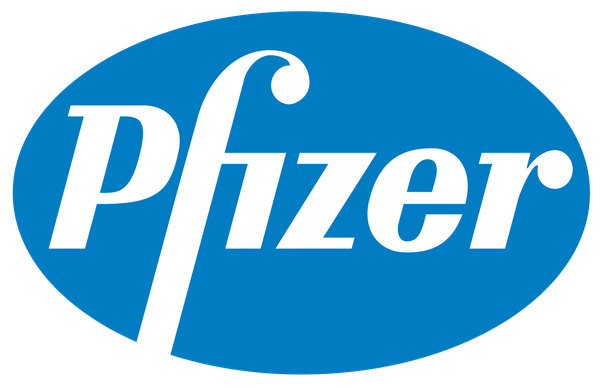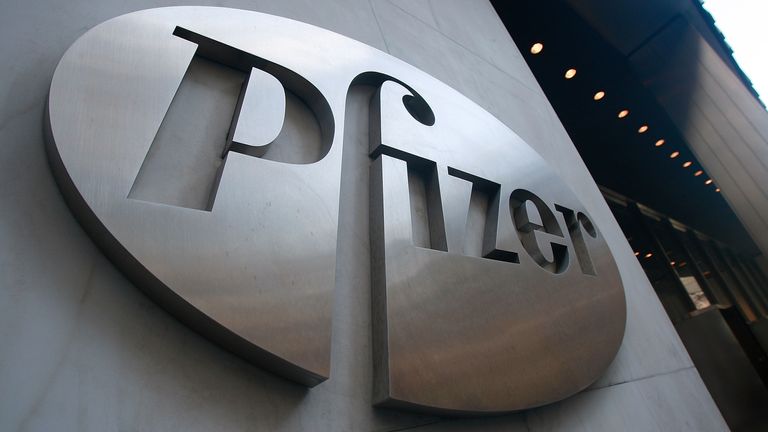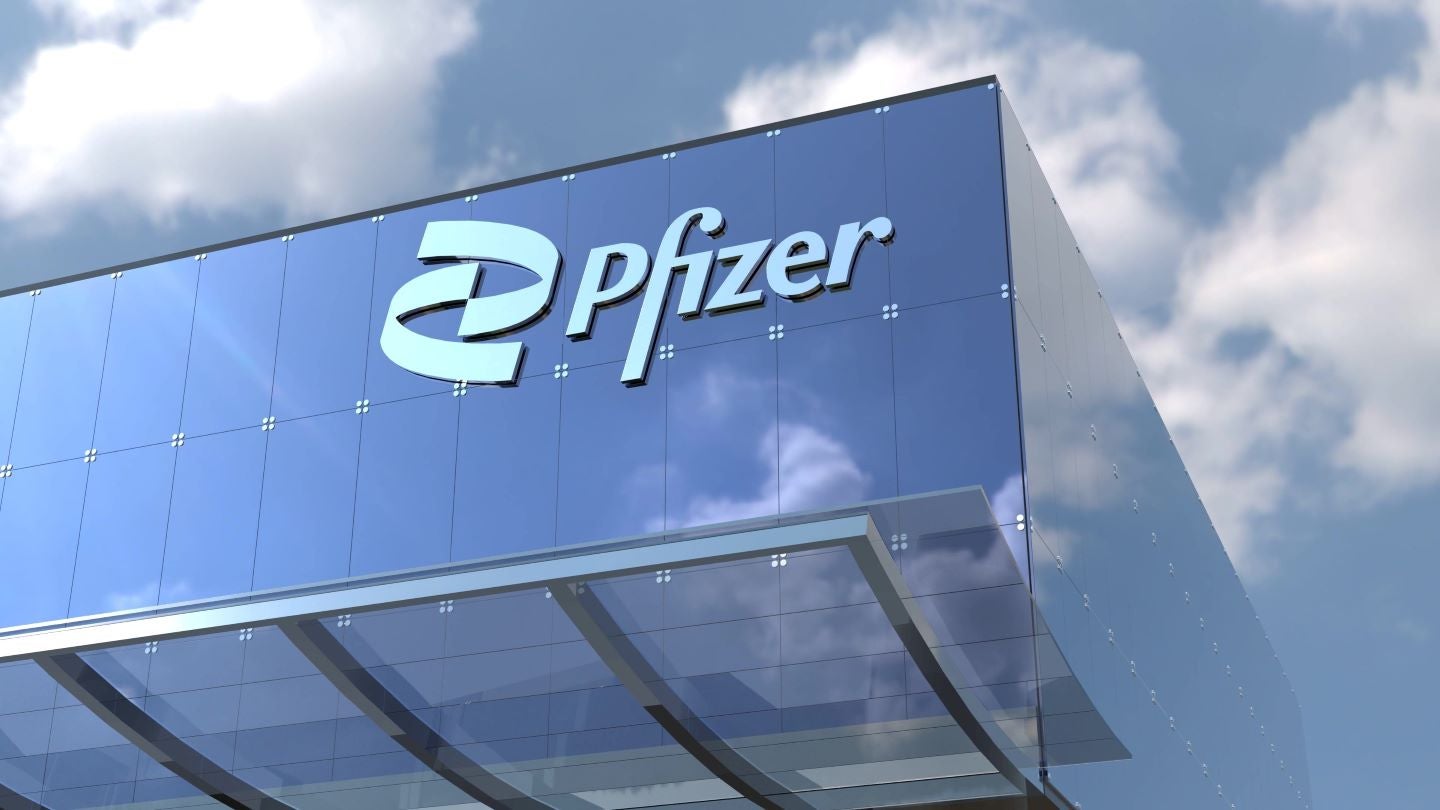Pfizer Inc. (NYSE:PFE) Stock Analysis: A Deep Dive into Financials and Future Prospects

- The consensus price target for Pfizer Inc. (NYSE:PFE) has decreased from $32.09 to $24, reflecting a cautious outlook from analysts.
- Despite challenges, Pfizer's valuation metrics indicate the stock is undervalued, with key ratios such as Price/Book and Price/Cash Flow significantly lower than industry averages.
- Pfizer faces hurdles like patent expirations and questionable management decisions but offers a promising dividend yield of approximately 7.55%.
Pfizer Inc. (NYSE:PFE) is a leading pharmaceutical company known for its wide range of biopharmaceutical products, including the COVID-19 vaccine, Comirnaty, and the oral treatment, Paxlovid. Over the past year, the consensus price target for Pfizer's stock has seen a significant decline. A year ago, analysts had set a higher average price target of $32.09, but recent months have seen this target drop to $24. This shift indicates a more cautious outlook from analysts regarding Pfizer's stock performance.
Several factors contribute to this change in sentiment. The initial surge in demand for COVID-19-related products has stabilized, impacting revenue expectations. Despite this, Pfizer's revenue is stabilizing, supported by strong cost efficiency measures. The company's robust product pipeline and consistent investments in research and development position it well for future growth, even with previous revenue fluctuations due to COVID-19.
Valuation metrics suggest that Pfizer's stock is significantly undervalued. Key ratios such as Price/Book and Price/Cash Flow are much lower than industry averages. Analyst Louise Chen from Cantor Fitzgerald has set a price target of $75 for Pfizer, indicating potential upside for the stock. This suggests that despite the current conservative outlook, there is optimism about Pfizer's future performance.
Pfizer's stock is currently trading at a 12-year low, despite substantial earnings from COVID-19-related products. This decline is attributed to flawed mergers and acquisitions and high levels of debt. The recent discontinuation of danuglipron, a potential obesity drug, highlights Pfizer's ongoing struggle to develop successful new drugs, impacting its market position.
The company faces challenges such as patent expirations, drug pricing controls, and questionable management decisions, which cast doubt on its future performance. However, Pfizer's upcoming Q1 earnings release presents an opportunity to lock in a dividend yield of approximately 7.55%. Investors and stakeholders should monitor Pfizer's earnings reports and strategic announcements for insights into the company's growth prospects and market positioning.
| Symbol | Price | %chg |
|---|---|---|
| PFE.BA | 8460 | -0.59 |
| KLBF.JK | 1180 | 0.42 |
| ABBV.BA | 29200 | -0.43 |
| 4519.T | 6580 | 2.07 |

Pfizer Raises Profit Forecast After Q2 Earnings Beat
Pfizer (NYSE:PFE) posted better-than-expected second-quarter earnings and revenue and raised its full-year profit outlook, sending shares up over 4% intra-day.
The pharmaceutical giant reported earnings per share of $0.78 for the quarter, ahead of the $0.57 consensus. Revenue rose 10% year-over-year to $14.7 billion, also topping estimates of $13.47 billion.
Chairman and CEO Dr. Albert Bourla said the quarter reflected strong execution, commercial progress, and pipeline advancement. The company cited margin improvement, lower tax rates, and favorable currency moves as drivers of the revised forecast.
Pfizer raised its full-year adjusted EPS guidance to a range of $2.90–$3.10, up $0.10 at the midpoint. The company maintained its full-year revenue forecast of $61.0 billion to $64.0 billion.

Pfizer Inc. (NYSE:PFE) Stock Analysis: A Deep Dive into Financials and Future Prospects
- The consensus price target for Pfizer Inc. (NYSE:PFE) has decreased from $32.09 to $24, reflecting a cautious outlook from analysts.
- Despite challenges, Pfizer's valuation metrics indicate the stock is undervalued, with key ratios such as Price/Book and Price/Cash Flow significantly lower than industry averages.
- Pfizer faces hurdles like patent expirations and questionable management decisions but offers a promising dividend yield of approximately 7.55%.
Pfizer Inc. (NYSE:PFE) is a leading pharmaceutical company known for its wide range of biopharmaceutical products, including the COVID-19 vaccine, Comirnaty, and the oral treatment, Paxlovid. Over the past year, the consensus price target for Pfizer's stock has seen a significant decline. A year ago, analysts had set a higher average price target of $32.09, but recent months have seen this target drop to $24. This shift indicates a more cautious outlook from analysts regarding Pfizer's stock performance.
Several factors contribute to this change in sentiment. The initial surge in demand for COVID-19-related products has stabilized, impacting revenue expectations. Despite this, Pfizer's revenue is stabilizing, supported by strong cost efficiency measures. The company's robust product pipeline and consistent investments in research and development position it well for future growth, even with previous revenue fluctuations due to COVID-19.
Valuation metrics suggest that Pfizer's stock is significantly undervalued. Key ratios such as Price/Book and Price/Cash Flow are much lower than industry averages. Analyst Louise Chen from Cantor Fitzgerald has set a price target of $75 for Pfizer, indicating potential upside for the stock. This suggests that despite the current conservative outlook, there is optimism about Pfizer's future performance.
Pfizer's stock is currently trading at a 12-year low, despite substantial earnings from COVID-19-related products. This decline is attributed to flawed mergers and acquisitions and high levels of debt. The recent discontinuation of danuglipron, a potential obesity drug, highlights Pfizer's ongoing struggle to develop successful new drugs, impacting its market position.
The company faces challenges such as patent expirations, drug pricing controls, and questionable management decisions, which cast doubt on its future performance. However, Pfizer's upcoming Q1 earnings release presents an opportunity to lock in a dividend yield of approximately 7.55%. Investors and stakeholders should monitor Pfizer's earnings reports and strategic announcements for insights into the company's growth prospects and market positioning.

UBS Trims Pfizer Price Target, Citing Overestimated Sales and IRA Headwinds
UBS reduced its price target on Pfizer (NYSE:PFE) to $24 from $28, maintaining a Neutral rating as the firm highlights several concerns ahead of the company's first-quarter 2025 earnings. The company’s shares fell more than 3% today.
Analysts believe Wall Street continues to misjudge the impact of the Inflation Reduction Act (IRA) on Pfizer’s revenue model. Management recently explained how high-cost drugs like Ibrance, Xtandi, Vyndaquel, and Xeljanz will face immediate hits due to their swift entry into the catastrophic coverage phase of Medicare’s Part D program. While some lower-priced products—such as Abrysvo, Eliquis, Nurtec, and Paxlovid—will benefit from fewer donut hole contributions, this offset isn’t enough to negate the overall pressure.
UBS also flagged overly optimistic consensus estimates for several key products. For instance, its internal forecast for Paxlovid stands at $566 million, significantly below the consensus of $1.6 billion. Similarly, its projection for Comirnaty is $295 million, compared to $380 million expected by analysts. Sales for Abrysvo are also expected to underperform, with UBS modeling $116 million versus the Street's $135 million.
UBS is currently 4.8% and 5.6% below consensus for total revenue and EPS, respectively. However, the firm notes that data for danuglipron, Pfizer’s experimental weight-loss drug, could act as a wildcard. If positive results are released alongside earnings and the drug is cleared for a large-scale Phase 3 trial, it could shift sentiment, despite weaker quarterly numbers.
For now, UBS remains cautious, looking for signs of COVID-related revenue stabilization, consistent growth in newer assets, and stronger pipeline execution before adopting a more bullish stance on the stock.

UBS Trims Pfizer Price Target, Citing Overestimated Sales and IRA Headwinds
UBS reduced its price target on Pfizer (NYSE:PFE) to $24 from $28, maintaining a Neutral rating as the firm highlights several concerns ahead of the company's first-quarter 2025 earnings. The company’s shares fell more than 3% today.
Analysts believe Wall Street continues to misjudge the impact of the Inflation Reduction Act (IRA) on Pfizer’s revenue model. Management recently explained how high-cost drugs like Ibrance, Xtandi, Vyndaquel, and Xeljanz will face immediate hits due to their swift entry into the catastrophic coverage phase of Medicare’s Part D program. While some lower-priced products—such as Abrysvo, Eliquis, Nurtec, and Paxlovid—will benefit from fewer donut hole contributions, this offset isn’t enough to negate the overall pressure.
UBS also flagged overly optimistic consensus estimates for several key products. For instance, its internal forecast for Paxlovid stands at $566 million, significantly below the consensus of $1.6 billion. Similarly, its projection for Comirnaty is $295 million, compared to $380 million expected by analysts. Sales for Abrysvo are also expected to underperform, with UBS modeling $116 million versus the Street's $135 million.
UBS is currently 4.8% and 5.6% below consensus for total revenue and EPS, respectively. However, the firm notes that data for danuglipron, Pfizer’s experimental weight-loss drug, could act as a wildcard. If positive results are released alongside earnings and the drug is cleared for a large-scale Phase 3 trial, it could shift sentiment, despite weaker quarterly numbers.
For now, UBS remains cautious, looking for signs of COVID-related revenue stabilization, consistent growth in newer assets, and stronger pipeline execution before adopting a more bullish stance on the stock.

Pfizer Inc. (NYSE:PFE) Surpasses Earnings and Revenue Estimates
- Pfizer reported earnings per share of $0.63, beating the estimated $0.47, and revenue of $17.76 billion, surpassing the $17.35 billion estimate.
- The company reaffirms its 2025 revenue guidance, projecting revenues between $61 billion and $64 billion.
- Pfizer's financial metrics indicate a strong market valuation with a price-to-earnings (P/E) ratio of approximately 34.45 and a debt-to-equity ratio of approximately 0.72.
Pfizer Inc. (NYSE:PFE) is a leading pharmaceutical company known for its innovative healthcare solutions. On February 4, 2025, Pfizer reported earnings per share of $0.63, surpassing the estimated $0.47. The company also reported a revenue of approximately $17.76 billion, exceeding the estimated $17.35 billion. This performance highlights Pfizer's strong market position and ability to exceed financial expectations.
As highlighted by Proactive Investors, Pfizer's fourth-quarter results exceeded expectations, reaffirming its revenue guidance for 2025. The company projects revenues between $61 billion and $64 billion for the year. Notably, sales from Covid-related products are expected to remain stable, contributing to the company's robust financial outlook.
According to Zacks, Pfizer's quarterly earnings of $0.63 per share surpassed the Zacks Consensus Estimate of $0.48 per share. This marks a significant improvement from the $0.10 per share earnings reported in the same quarter last year. The increase in earnings reflects Pfizer's successful strategies in navigating the challenges of the pharmaceutical industry.
CNBC reports that Pfizer's strong fourth-quarter performance was driven by better-than-expected sales of Covid products and increased revenue from cancer drugs acquired through Seagen. This success comes after a pivotal year for Pfizer, during which the company actively reduced costs to recover from a decline in its Covid business and stock price over the past two years.
Pfizer's financial metrics provide insight into its market valuation. The company has a price-to-earnings (P/E) ratio of approximately 34.45, indicating the price investors are willing to pay for each dollar of earnings. Its price-to-sales ratio is about 2.44, and the enterprise value to sales ratio is around 3.53. These figures suggest that the market values Pfizer at a premium compared to its sales. Additionally, Pfizer's debt-to-equity ratio of approximately 0.72 indicates a balanced approach to financing its operations.

Pfizer Inc. (NYSE:PFE) Surpasses Earnings and Revenue Estimates
- Pfizer reported earnings per share of $0.63, beating the estimated $0.47, and revenue of $17.76 billion, surpassing the $17.35 billion estimate.
- The company reaffirms its 2025 revenue guidance, projecting revenues between $61 billion and $64 billion.
- Pfizer's financial metrics indicate a strong market valuation with a price-to-earnings (P/E) ratio of approximately 34.45 and a debt-to-equity ratio of approximately 0.72.
Pfizer Inc. (NYSE:PFE) is a leading pharmaceutical company known for its innovative healthcare solutions. On February 4, 2025, Pfizer reported earnings per share of $0.63, surpassing the estimated $0.47. The company also reported a revenue of approximately $17.76 billion, exceeding the estimated $17.35 billion. This performance highlights Pfizer's strong market position and ability to exceed financial expectations.
As highlighted by Proactive Investors, Pfizer's fourth-quarter results exceeded expectations, reaffirming its revenue guidance for 2025. The company projects revenues between $61 billion and $64 billion for the year. Notably, sales from Covid-related products are expected to remain stable, contributing to the company's robust financial outlook.
According to Zacks, Pfizer's quarterly earnings of $0.63 per share surpassed the Zacks Consensus Estimate of $0.48 per share. This marks a significant improvement from the $0.10 per share earnings reported in the same quarter last year. The increase in earnings reflects Pfizer's successful strategies in navigating the challenges of the pharmaceutical industry.
CNBC reports that Pfizer's strong fourth-quarter performance was driven by better-than-expected sales of Covid products and increased revenue from cancer drugs acquired through Seagen. This success comes after a pivotal year for Pfizer, during which the company actively reduced costs to recover from a decline in its Covid business and stock price over the past two years.
Pfizer's financial metrics provide insight into its market valuation. The company has a price-to-earnings (P/E) ratio of approximately 34.45, indicating the price investors are willing to pay for each dollar of earnings. Its price-to-sales ratio is about 2.44, and the enterprise value to sales ratio is around 3.53. These figures suggest that the market values Pfizer at a premium compared to its sales. Additionally, Pfizer's debt-to-equity ratio of approximately 0.72 indicates a balanced approach to financing its operations.







